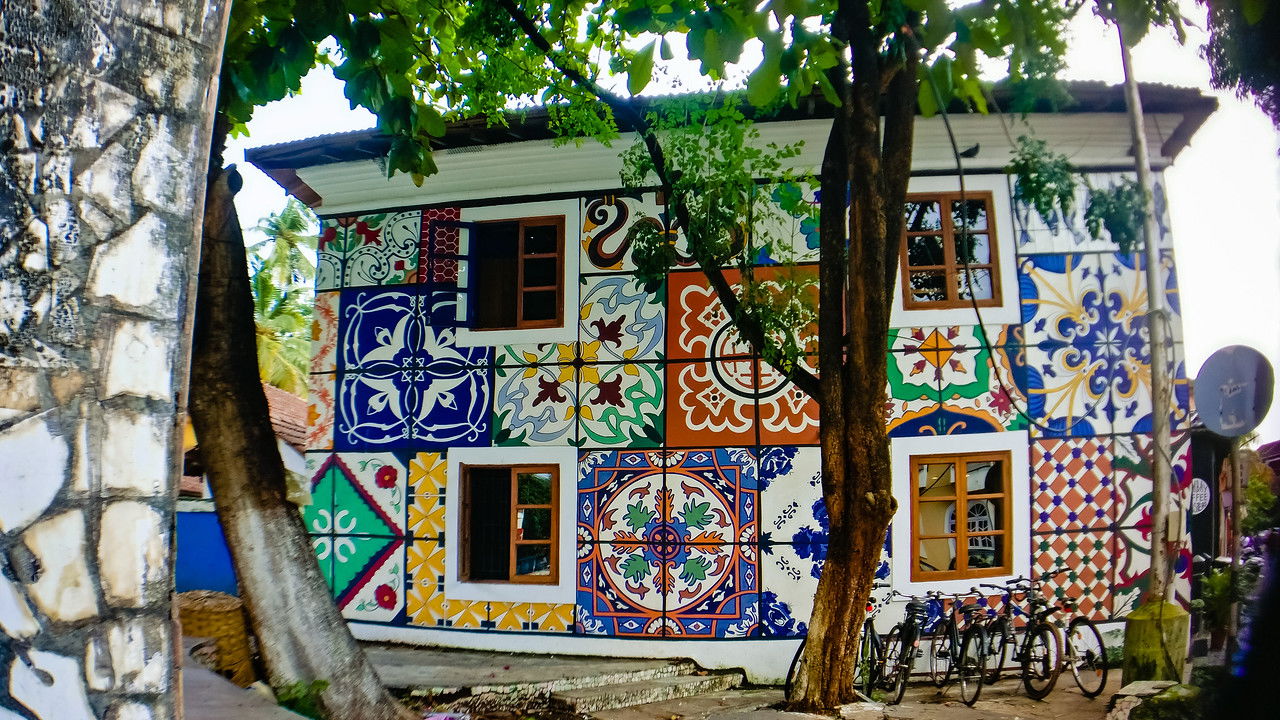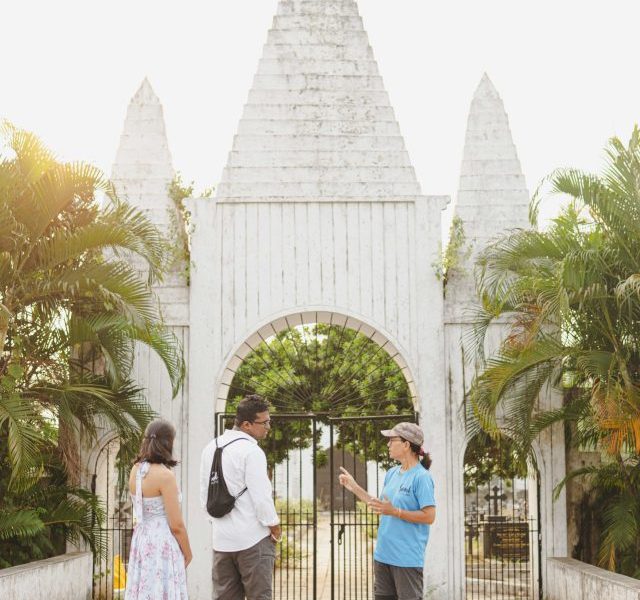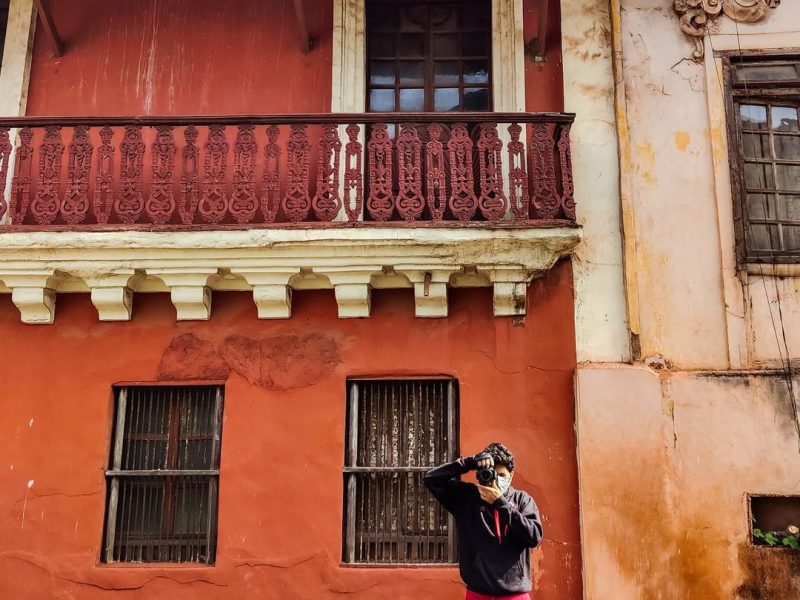There’s something about experiencing history first-hand by walking right through it. The rustic, dainty houses, residents willingly spilling stories of a different time and winding lanes that take you straight through wonderland. Wouldn’t that be fun? That’s what you see when you walk through the Latin Quarters. All kinds of questions flood your head as the colours hold you in awe of this wonderful place. A slice of Europe in Goa, the Latin Quarters have many secrets to tell.

When you enter Panjim city from the road that goes along the bus stand, ask for the Panjim post office. It’s the easiest landmark near the Latin Quarters in Fontainhas. Once you get there, take the road that goes straight in on its right. You’ll be welcomed by brightly coloured houses. Now all you have to do is follow your heart and let the winding roads take you to instagram-worthy pictures!

Speaking of pretty, you’ll notice that the colours of the houses stand apart from the rest of the city. It is a very fascinating mystery. Why are they so bright and pretty? It’s simple. Goans wanted their homes to be colourful and those were the only colours they had back then. The churches were white and identifiable and the houses were colourful. The reds came from laterite, the yellows from burning lime, the blues from indigo and the greens from mixing blue and yellow. The process obviously must have been way more complicated than I make it seem and honestly, it looks like it was worth it. The Quarters looked worthy of representing the Portuguese’s newfound capital!
The only reason the Portuguese had to find a new capital was a horrific plague. People were dying and they had to move to survive. So they did, from Velha Goa to Panjim. The magnitude of the population that was moving required construction of new domiciles.
They started with the Fontainhas area and eventually spread. What’s interesting to know is that the Latin Quarters were established by a Goan expatriate Antonio Joao de Sequeira who converted his coconut plantation for this. Hence Panjim became Nova Goa and pretty houses sprung in the Latin Quarters. We suggest you look out for balcaos, sacadas and finials that are some of the most aesthetic bits about these Goan homes.

Apart from simply staring at the houses for hours, there are plenty of other things you can do in the Latin Quarters. You can indulge in delicious Goan snacks at Morango’s or at Confeitaria Rua de 31 Janeiro. Try out rissois, croquettes, bebinca, doce, dodol, pinagr, baath and Goan samosas. These are some of our absolute favourites that we have to have in our Secret Food Trails! Apart from that the Latin Quarters has some really cool bars.
If you are looking for bars in Goa, Joseph Bar and Antonio’s are well-known for their vibe and amazing tapas! If you still keep wandering around, you’ll come across pretty wall art, historical structures and even temples worth taking a second look at. Morning would be the best time to visit Latin Quarters so you can catch a good Goan breakfast at Anita’s Tea House and some amazing coffee at Bombay Coffee Roasters. And if you stay until lunch, Viva Panjim will dish out some scrumptious Goan meals that you’ll come back for again and again!

The Latin Quarters are an important piece in Goa’s history and tell a story of perseverance and survival. Today, it is a celebrated location filled with quaint bars, vibrant cafes and cute homes that is worth visiting. However, when you check out the Latin Quarters in Goa, don’t forget to lend an ear to its history.



